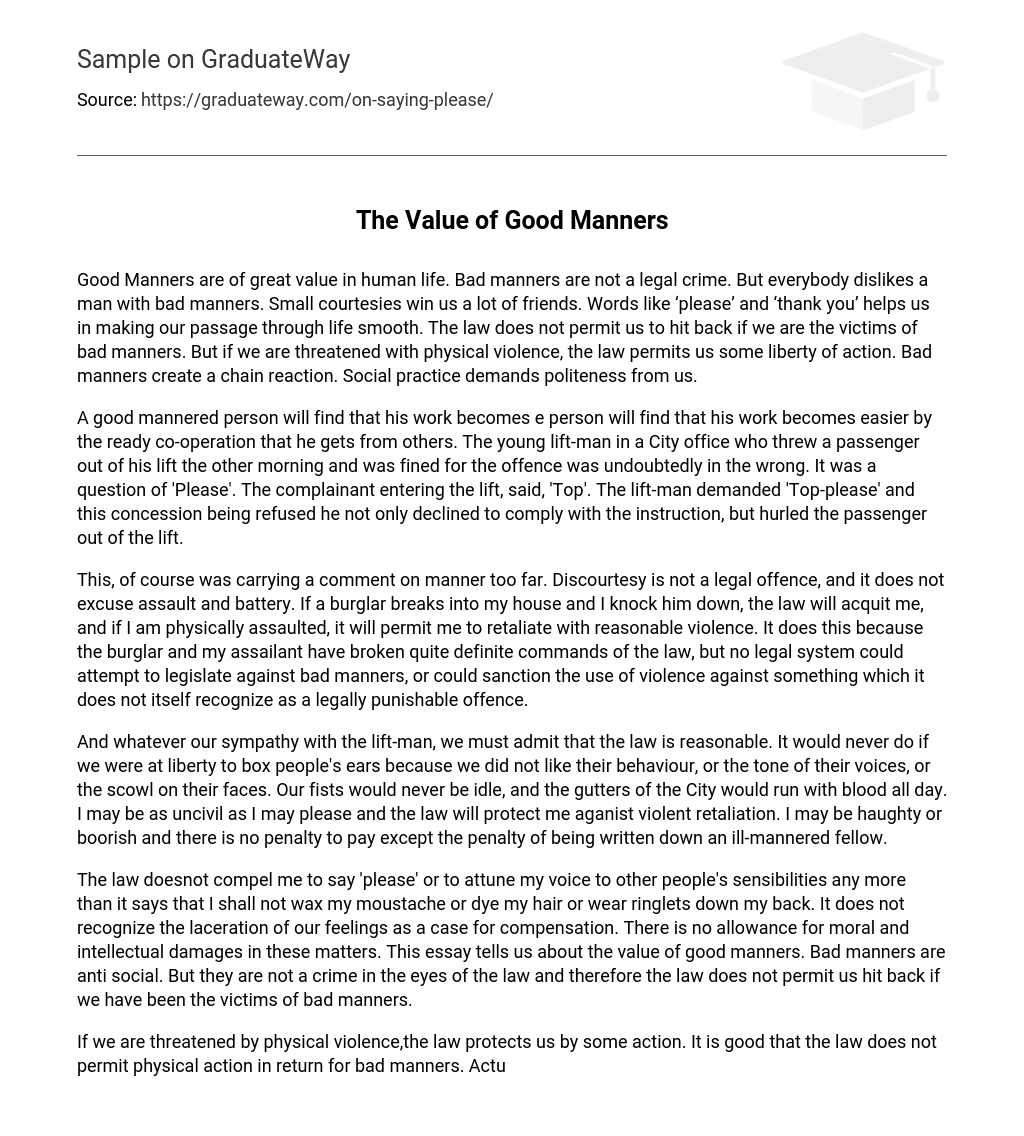Good etiquette is immensely important in human existence, and while there are no legal consequences for poor manners, they are universally detested. Demonstrating simple acts of politeness, such as utilizing phrases like ‘please’ and ‘thank you,’ enables us to navigate life smoothly. It should be noted that retaliating against bad behavior is not permitted by law, but certain allowances may be made if faced with physical violence. Additionally, ill-mannered conduct can initiate a series of negative events, underscoring the necessity of conforming to societal norms of courtesy.
A polite individual will discover that their job is made easier by the willingness of others to cooperate. Recently, a young elevator operator in a City office made a mistake when he forcibly removed a passenger from his elevator, resulting in him being fined. The issue at hand was a matter of simple politeness. The passenger entered the elevator and requested to go to the top floor. The elevator operator responded with a demand for a polite request, saying “Top-please”. When the passenger declined to provide this additional concession, not only did the elevator operator refuse to comply with their request, but they forcefully expelled the passenger from the elevator.
Exaggerating the idea of appropriate behavior, this is. Being impolite is not a crime and does not justify physical aggression. If I were to apprehend a burglar who entered my house, the law would consider me innocent. Similarly, if I am physically attacked, the law permits me to respond with suitable force. It allows such actions because both the intruder and my attacker have clearly broken laws, but no legal system can try to regulate rudeness or support violence towards something it does not consider punishable.
Although we feel sorry for the lift-man, we cannot overlook the justifiability of the law. It would be unacceptable if we had the liberty to harm others physically based solely on our dislike of their behavior, tone of voice, or facial expression. In such a scenario, violence would prevail constantly in public places. I possess the freedom to act rudely without worrying about violent reprisals, and even though I may come across as arrogant or uncivilized, there are no repercussions except being branded impolite.
The law does not require individuals to be polite or considerate of others’ feelings, nor does it restrict personal grooming choices. Emotional harm is not acknowledged as a legitimate reason for pursuing legal compensation. Although being impolite is socially frowned upon, there are no legal consequences for such conduct. Therefore, if we encounter rudeness, the law prevents us from seeking retaliation.
If we encounter physical violence, the law provides protection by taking appropriate measures. It is fortunate that the law prohibits responding to rudeness with physical retaliation. However, instances of poor manners are common. If there were consequences for bad manners, it would lead to excessive violence. People tend to avoid those with poor manners as they are not well-liked. On the other hand, being in the presence of someone who possesses good manners brings us joy and their company is truly delightful.





